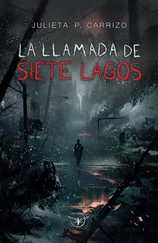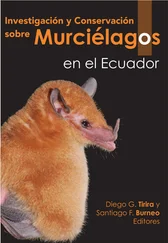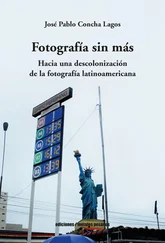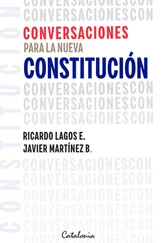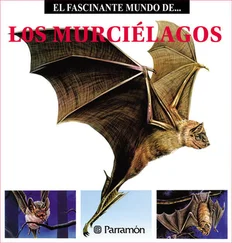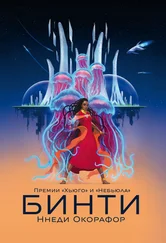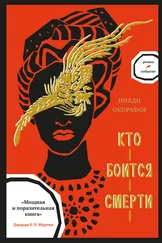Ннеди Окорафор - Lagos Noir
Здесь есть возможность читать онлайн «Ннеди Окорафор - Lagos Noir» весь текст электронной книги совершенно бесплатно (целиком полную версию без сокращений). В некоторых случаях можно слушать аудио, скачать через торрент в формате fb2 и присутствует краткое содержание. Город: New York, Год выпуска: 2018, ISBN: 2018, Издательство: Akashic Books, Жанр: Детектив, на английском языке. Описание произведения, (предисловие) а так же отзывы посетителей доступны на портале библиотеки ЛибКат.
- Название:Lagos Noir
- Автор:
- Издательство:Akashic Books
- Жанр:
- Год:2018
- Город:New York
- ISBN:978-1-61775-523-1
- Рейтинг книги:4 / 5. Голосов: 1
-
Избранное:Добавить в избранное
- Отзывы:
-
Ваша оценка:
- 80
- 1
- 2
- 3
- 4
- 5
Lagos Noir: краткое содержание, описание и аннотация
Предлагаем к чтению аннотацию, описание, краткое содержание или предисловие (зависит от того, что написал сам автор книги «Lagos Noir»). Если вы не нашли необходимую информацию о книге — напишите в комментариях, мы постараемся отыскать её.
Lagos Noir — читать онлайн бесплатно полную книгу (весь текст) целиком
Ниже представлен текст книги, разбитый по страницам. Система сохранения места последней прочитанной страницы, позволяет с удобством читать онлайн бесплатно книгу «Lagos Noir», без необходимости каждый раз заново искать на чём Вы остановились. Поставьте закладку, и сможете в любой момент перейти на страницу, на которой закончили чтение.
Интервал:
Закладка:
Lagos Noir

Introduction
Lagos Never Sleeps
I am listening to Lagos with my eyes closed.
My first memory of Lagos is one I cannot trust. I was four, maybe five years old and my family, my mother and my four siblings, have just returned from London where we fled in 1968, as the war in Nigeria raged for its second year.
Ikeja Airport in 1970 has few amenities to offer us, particularly since my mother has been a vocal pro-Biafra activist in England during the Nigerian-Biafran civil war, one of the many war wives who spoke up against the British government’s support of the Nigerian side. We were held for questioning in a hot tin-roofed hangar for hours. This is only what I remember.
An okra and palm oil stew that nearly burned my lips off is my second memory of Lagos. It was 1980 and my mother, my sister, and I were heading back to London. We were on our way to Lagos by car because the flight we were supposed to take from Enugu to Lagos had been cancelled — and then rebooked at twice the price to other passengers. So, my brother had accompanied us by road and after an eight-hour trip in a nauseously hot taxi, we had stopped in Shagamu, fifty miles outside of Lagos, for a roadside café lunch. Even then, Lagos had sprawled out to Shagamu.
My third memory of Lagos is about my Uncle William. I didn’t know I had an Uncle William until he died when I was fifteen. Two men appeared on our doorstep claiming to come from my Uncle William’s congregation. It turns out that having failed out of school in Germany and having not returned to the village for my grandmother’s funeral, William was exiled not just from the family, but also from the memory of the family. And yet he haunted it, from his small Santeria-based church in the worst ghetto of the city, Maroko.
It was in search of this uncle, this memory, this loss that I couldn’t even shape my tongue around, that I went to Lagos for the first time as an adult: hitchhiking alternately by train and lorry; a stupid but exhilarating journey. It was in Maroko that I found the Lagos inside me.
Lagos has, like many coastal cities, a very checkered and noir past. It is the largest city in Nigeria and its former capital. It is also the largest megacity on the African continent, with a population approximating twenty-one million, and by itself is the fourth-largest economy in Africa. Though named by the Portuguese ( Lagos means lakes in Portuguese; the city was also known briefly as Onim) because of the many islands and lagoons that make up its sprawl (it has since had so much land reclaimed from the city for its expansion that it bears no resemblance to that time), its pronunciation, with its subsequent British history, has been anglicized. Surest way to annoy a Lagosian is to call it by its Portuguese pronunciation.
It was previously inhabited by the Awori and then it was under the rule of the Benin Empire, then the British, and then independence. It was known locally as Eko, then Onim, then Lagos, then in slang as Lasgidi, and gidi, and on — the city of many names that wears as many faces as there are people. People from Lagos call themselves Omo-Eko, children of Eko. It is a beautiful, chaotic, glorious, resplendent, mess of a city. In many ways Eko makes New York feel like a small town.
The Yoruba, who are the natives of Lagos, have lived in urban-style locales for over seven thousand years, some of the earliest people to do so. Cities by their very nature lend themselves to noir, or at least the earlier antecedents of noir — morality plays and, one can argue, even the Penny Dreadfuls of Victorian London. But classic noir as we have come to know it is an invention of the post — World War II era, an invention that is used to express the ennui and desperation that followed the two wars.
The horrors of the slave trade and the subsequent colonial expansions of empires into Africa did much to shake the European sense of moral superiority. But it was something about the nineteenth century, the Victorian obsession with death perhaps, that really ignited the fire for noir. There was Jack the Ripper, the work of Arthur Conan Doyle, and then Joseph Conrad. Conrad’s Heart of Darkness was written after his visit to the Belgian Congo. What happened there, the horrors the Belgians perpetrated against the Africans — amputations for not paying taxes, amputations on children to compel obedience among adults — is old history now. But then, it was happening. A sympathetic reading could be that this evil inherent in whiteness was too much for a mind like Conrad’s, so deeply mired in the myth of white moral superiority to accept, so he projected outward the darkness onto the Africans, making them less than human, as though that somehow justified what was going on. The First and Second World Wars did the rest, shredded what was left, and the noir genre was born. It ranged from hard-boiled detective fiction to more general suspense, thriller, etc.
Nigerians fought in both the First and Second World Wars on behalf of the British. The men who served lived through hell and came back to no pensions and no job prospects. But the struggle for independence was the focus of the elite, and so not much attention was paid to the returning soldiers, and to the feelings of emptiness and horror that they must have shared with their European counterparts. The literature that bears the closest resemblance to noir were the pamphlets of the Onitsha Market pulp varieties.
It is rumored that there are more canals in this Lagos than in Venice. Except in Lagos they are often unintentional. Gutters that have become waterways and lagoons fenced in by stilt homes or full of logs for a timber industry most of us don’t know exists. All of it skated by canoes as slick as any dragonfly. There are currently no moonlight or other gondola rides available.
Christ Church Cathedral rises from the slump of land between the freeway and the sea and Balogun Market, like Monet’s study of Rouen Cathedral. In the shadow, in the motor park that hugs its façade, is the best “mama-put” food in Lagos. Its legend travels all the way across the country. The seasoned Lagosian gastronomes can be heard chanting their orders, haggling with the madam — Make sure you put plenty kpomo , or, No miss dat shaki. No, no, no, dat other one . There can be no sweeter music, no better choir. In the distance, bus conductors call like Vikings from the prows of their ships, testing the fog of exhaust fumes — Obalande straight! Yaba no enter!
In the shadow of high-rises, behind the international money of Broad Street, the real Lagos spreads out like a mat of rusting rooftops.
In Ikoyi Bay, boats dot the sea, sails like lazy gulls catching the breeze. Across the bay, the millionaires’ village that was once Maroko sits in a slight mist. I think it is the ghost of that lost place haunting the rich to distraction, so that even their twelve-foot walls, barbed razor wire or broken glass crowning them, or the searchlights, or the armed guards, cannot make their peace with the moans of a woman crying for a child crushed by the wheels of bulldozers. Or maybe it is just the wind sighing through palm fronds.
Like in any world city, there are so few original inhabitants that they wear their Eko badges like honor. There is nothing like Bar Beach on a Sunday afternoon. The sand is white, the diamond-shaped all-glass Union Bank Building across the street reflects the water and makes you think it is a wave frozen in time. Children ride flea-infested horses, squealing in a childish delight that is a mix of fear and awe. Slow-roasting lamb suya blankets everything with desire. A cold Coca-Cola here tastes like everything the ads on TV promise — I shit you not.
Читать дальшеИнтервал:
Закладка:
Похожие книги на «Lagos Noir»
Представляем Вашему вниманию похожие книги на «Lagos Noir» списком для выбора. Мы отобрали схожую по названию и смыслу литературу в надежде предоставить читателям больше вариантов отыскать новые, интересные, ещё непрочитанные произведения.
Обсуждение, отзывы о книге «Lagos Noir» и просто собственные мнения читателей. Оставьте ваши комментарии, напишите, что Вы думаете о произведении, его смысле или главных героях. Укажите что конкретно понравилось, а что нет, и почему Вы так считаете.
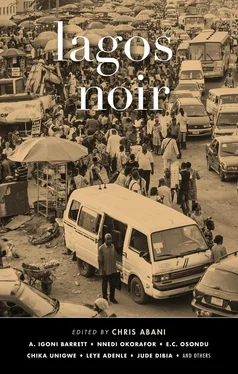


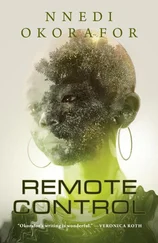
![Ннеди Окорафор - Бинти [litres]](/books/399229/nnedi-okorafor-binti-litres-thumb.webp)
![Ннеди Окорафор - Кто боится смерти [litres]](/books/401080/nnedi-okorafor-kto-boitsya-smerti-litres-thumb.webp)
